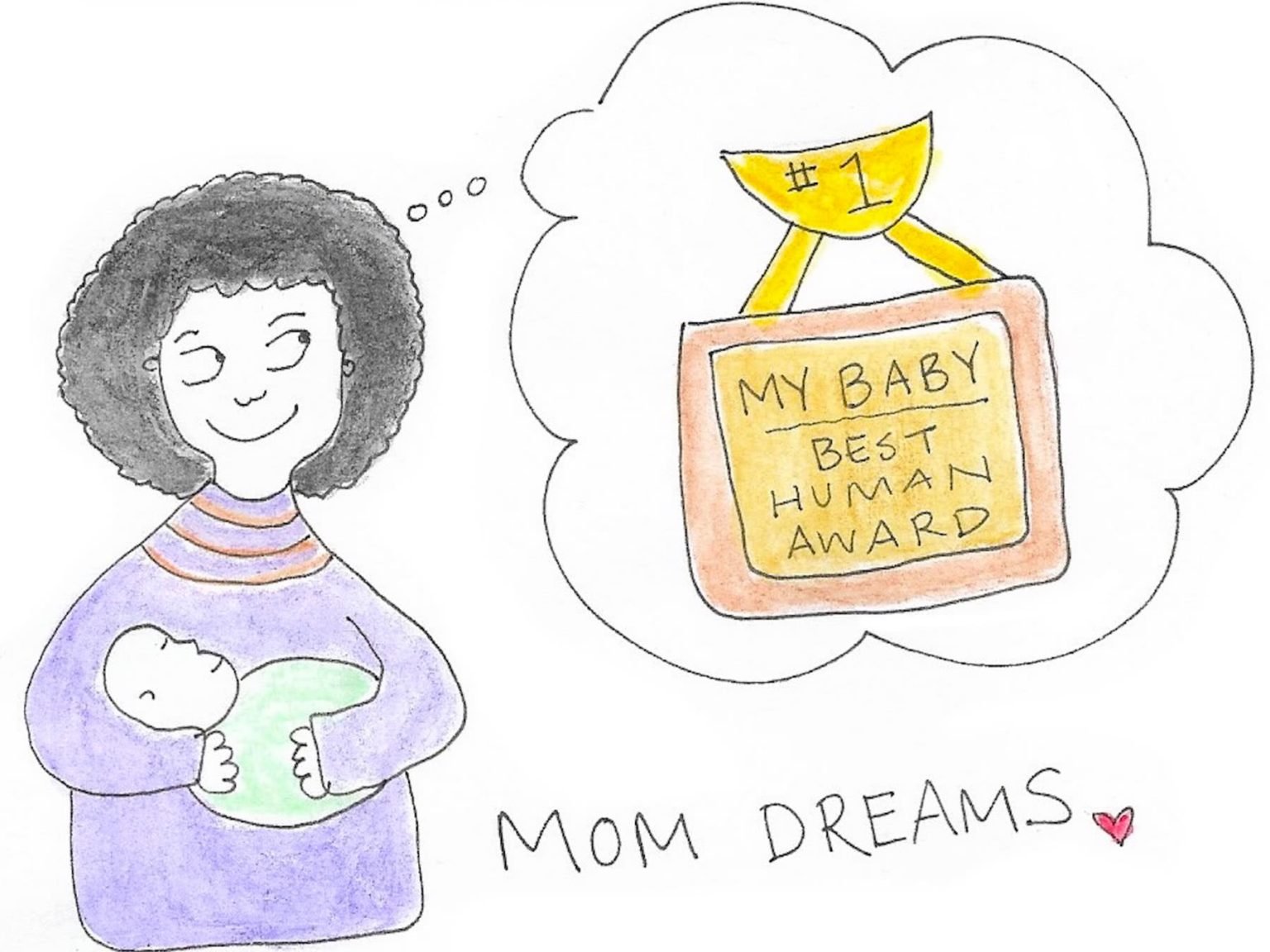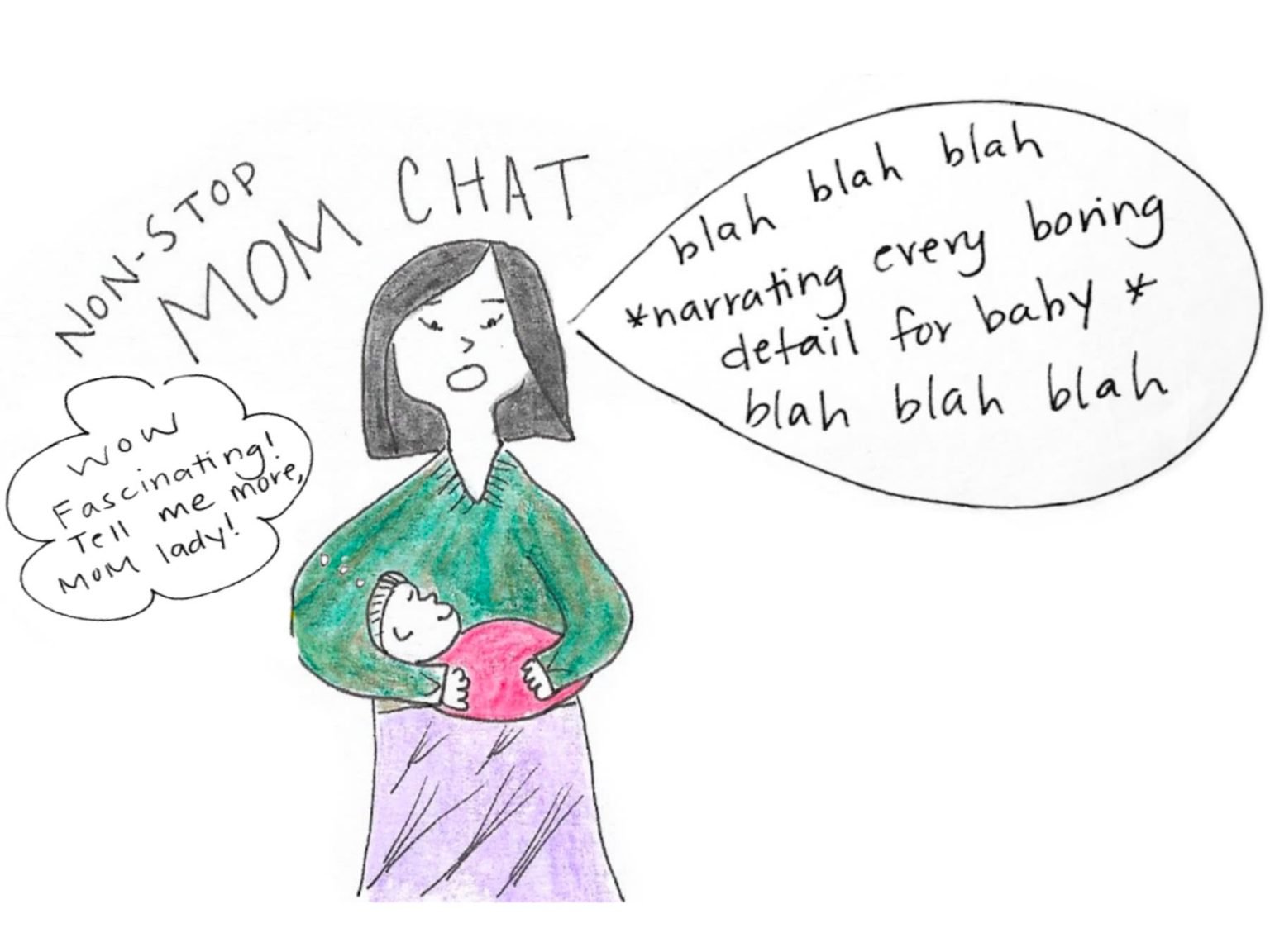Appointment Videos
Watch one of the videos in Watch & Talk below to discuss with your baby’s provider and special people at home.
Watch & Talk
The most difficult time of day
This mother talks about her most difficult time of day with her new baby. What is the most difficult time of day for you? Click HERE to watch this video in Spanish.
Baby’s Perspective: Responding
What might this baby be feeling? What is he learning? What might the mom do when she's done on the phone? Do you ever have moments like this with your baby?
Mom’s Perspective: Responding
This mom describes what her baby does to get her attention when she is occupied with another task. What does your baby do when you can’t respond right away? How does it make you feel? Click HERE to watch this video in Spanish.
TIP: If you are unable to respond to your baby right away, dont worry. This is common. When you’re able to, go soothe your baby. This is called “repair” and is important for your baby so that they learn you haven’t forgotten them. This makes them feel secure.
After Visit Appointment
Watch the videos below at home with friends and loved ones and discuss what relates to your life.
Interacting With Baby
Engaging baby
This mom discusses singing with her baby and enjoying his coos. Notice the back and forth. What songs do you love to sing to your baby? Click HERE and HERE to watch this video in Spanish.
Something For You
Friends or Family?
In this video, this mother explains that she has family, but no friends. Each parent needs to find their own helpful support, whether family and/or friends. Do you have family or friends who help you? Do you have an activity you enjoy like reading is for this mother? Click HERE to watch this video in Spanish.
Mind & Body
Make time for you and baby to take care of yourself and each other in small ways. Click HERE to watch this video in Spanish.
Remember to smile
Laughter is the best medicine!
Special Circumstances
Lessons from the past and a new future
In this video, the mom describes doing things differently with her new baby based on what she learned from previous mistakes. How has your past taught you something new? Click HERE to watch this video in Spanish.
Financial troubles
This family describes the challenge of making ends meet. Do you have financial troubles? How do you plan to address it? Click HERE to watch this video in Spanish.
Immigration separation
This mom describes the challenges related to immigration. Do you have immigration challenges? Click HERE to watch this video in Spanish.
Dr. Cyndie’s Tips!
Financial Stress
Click HERE to watch this video in Spanish.
Be the mother you want to be
Click HERE to watch this video in Spanish.
Top FAQs
-
During pregnancy, your body makes a hormone called relaxin to make your joints looser for your growing baby. Relaxin plus weight gain can sometimes make your feet slightly bigger for five months after delivery. And in some moms these changes can persist for much longer. Also this can contribute to joint pains. Try low impact stretches and exercises (like walking) to prevent your joints from aching.
-
Everyone needs people in their lives to talk about what they are experiencing. With a new baby, it's much easier to relate to other parents since it is a unique experience and the challenges are often similar. It’s important to not only focus on your baby but to discuss the common joys and challenges of motherhood with other parents. This helps to normalize the experience. However, it can be hard to make new friends. We recommend either looking in your neighborhood for mommy baby classes at your local library, checking out breastfeeding cafes, reaching out to religious organizations, or any other community organization that serves families. Chatting with another parent at the park or your child's day care can be much easier than you think and very helpful.
-
Many mothers had difficult times growing up, and sometimes when they're tired, the feelings come back. If you ever felt rejected or treated badly by your parents, those experiences may still affect you or influence your present day relationships. The best way to cope is to talk about it. Find someone you trust, and tell them the story of your childhood (the good and the bad). You may also want to find a counselor or a trusted professional to unpack any unresolved feelings from your childhood. Talking about these experiences helps us put them to rest, so the ghosts do not pop up in our parenting.





